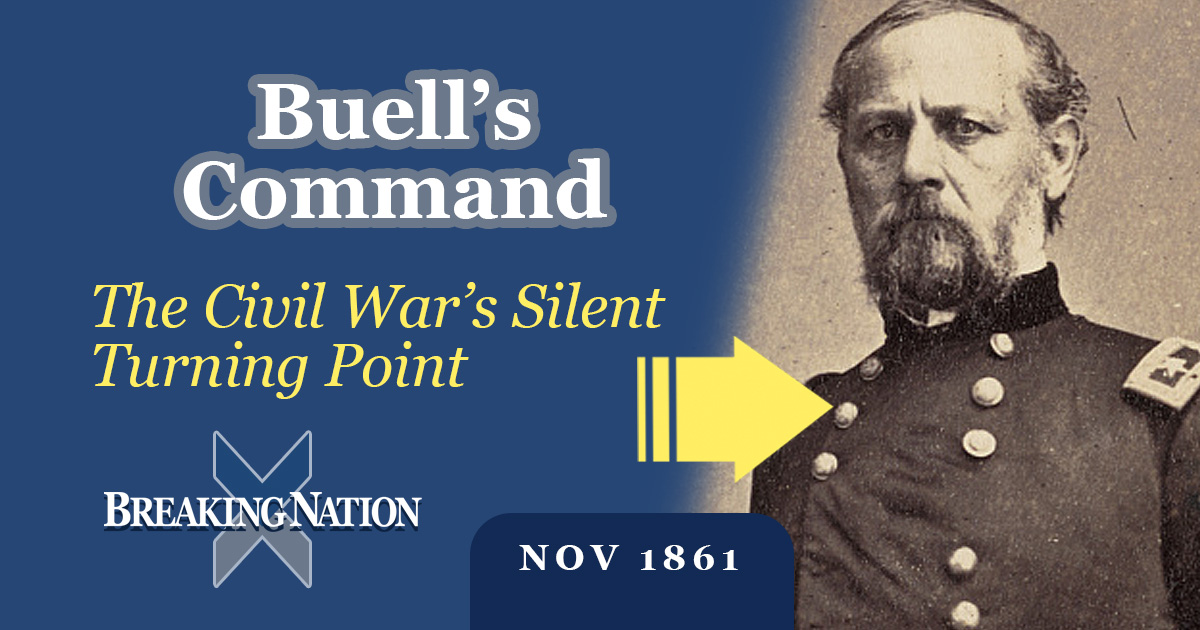Buell’s Department: A Quiet Force in a Tumultuous War

When General Don Carlos Buell assumed command of the newly created Department of the Ohio on November 15, 1861, the Union war effort entered a crucial transitional moment. The early months of the Civil War had been marked by confusion, rivalry among commanders, and uneven results in the Western Theater. Buell’s appointment signaled Washington’s attempt to bring order, professionalism, and strategic coherence to a vast and divided region stretching across Kentucky, Tennessee, and parts of the Midwest. His command would soon shape the Union’s western strategy and test the delicate balance between military necessity and political restraint.
Buell, a West Point graduate and Mexican War veteran, was respected for his discipline and organizational skill—traits sorely needed in late 1861. The Department of the Ohio inherited disorganized volunteer armies and uncertain loyalties, particularly in Kentucky, which had only recently abandoned its precarious “neutral” stance. The Lincoln administration viewed Buell as a stabilizing force who could impose order while advancing the Union line deeper into Confederate territory. His appointment followed the recall of General William T. Sherman, whose brief and troubled tenure in Kentucky had left morale and coordination in disarray.
Strategically, Buell’s task was daunting. He was expected to secure Kentucky, rebuild its defenses, and prepare a drive into Tennessee—objectives that would complement General Ulysses S. Grant’s emerging operations further west. In effect, Buell was being positioned as a counterpart to Grant, each overseeing one wing of the Union’s western advance. The coordination between their commands, however imperfect, would lay the groundwork for the capture of Nashville and the eventual opening of the Deep South to invasion.
Politically, Buell’s arrival also reflected the Lincoln administration’s awareness of Kentucky’s sensitivity. A hard-driving general could easily alienate the state’s fragile Unionist government. Buell’s cautious temperament and belief in limited war—he was reluctant to interfere with slavery or impose harsh measures—initially made him a politically safe choice. Yet that same caution would later draw criticism from Washington and from Grant himself, who found Buell’s deliberate pace ill-suited to the war’s growing urgency.
In short, Buell’s assumption of command marked a turning point in the Union’s western organization: a moment when strategy, politics, and personality intersected. His tenure in the Department of the Ohio established the logistical and administrative foundations for later Union victories, even if Buell himself would eventually be overshadowed by more audacious commanders.
Breaking Nation: A Civil War Podcast explores the American Civil War, its turning points, and our national memory. Discover full episodes, transcripts, and resources at www.breakingnation.com — your destination for in-depth Civil War podcast content and fresh perspectives on America’s past. Listen on Apple Podcasts, Spotify and Amazon Music.




